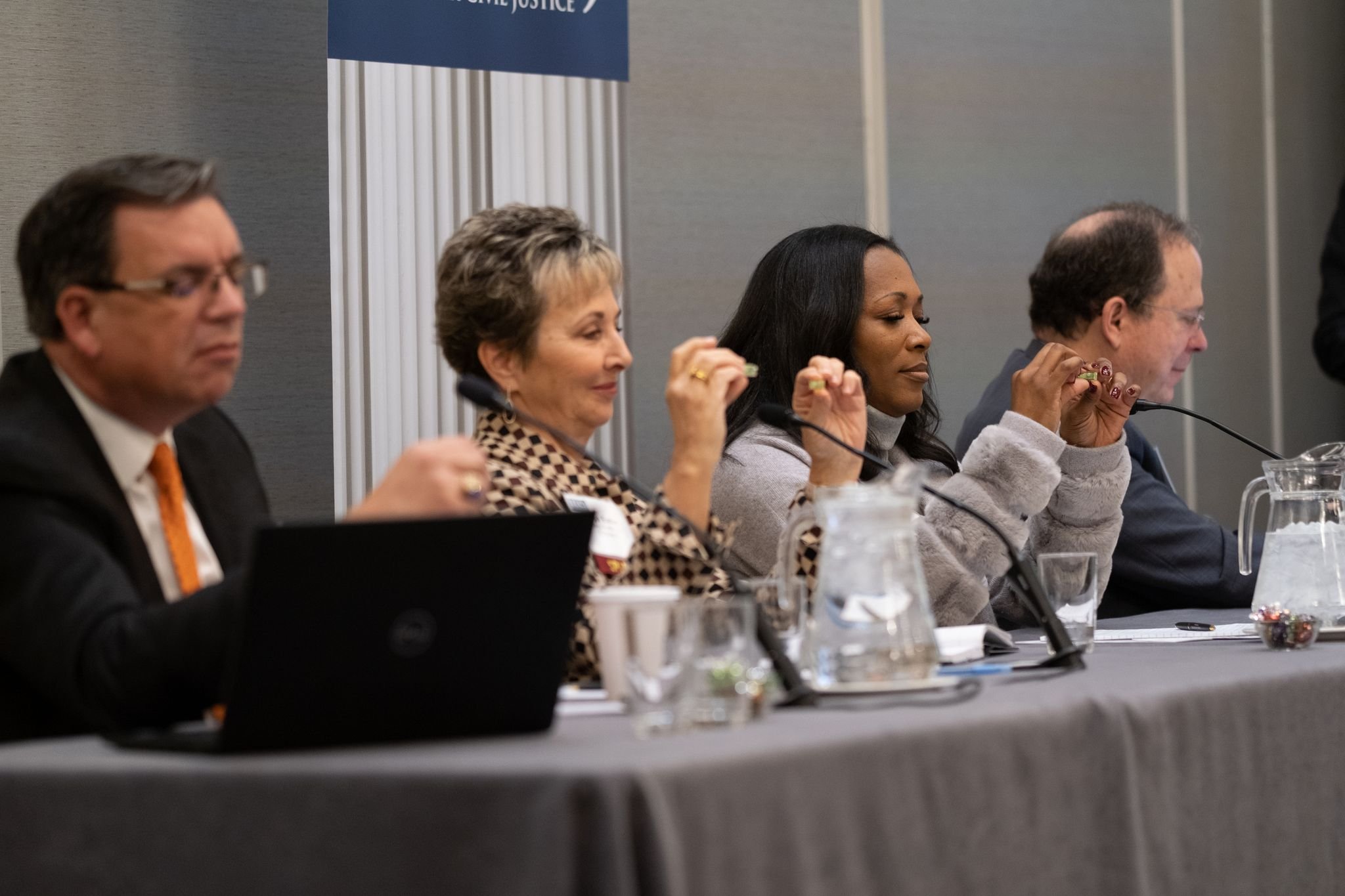
COmmittees
LCJ’s advocacy is organized around six substantive committees, each working to advance LCJ proposals: Class Action, Cost Allocation, Discovery, Expert Evidence, Multidistrict Litigation; and Third-Party Litigation Funding. LCJ’s Amicus Committee has limited membership so that it can act promptly and nimbly in response to brief requests. LCJ’s Public Trust in the Courts Committee focuses on improving public confidence in our judicial system. LCJ also has two important non-substantive committees: Diversity and Young Lawyers, and Membership. Committees meet periodically and in working groups focused on specific projects.
If you are with an LCJ member company or law firm and are interested in deepening your engagement in LCJ through committee participation, please let us know using the “join a committee” button.
Amicus Committee
The Amicus Committee Identifies opportunities to advance LCJ’s advocacy positions by proactively identifying appropriate cases on which to submit amicus briefs and vetting amicus requests received from members and other organizations. The committee supervises the drafting of amicus briefs that are focused on the interpretations of the Federal Rules of Civil Procedure or address other topics directly related to LCJ’s unique experience and expertise.
Class action Committee
This committee advocates for improvements to rules governing class action litigation. The committee supports a proposal to amend Rule 23(b)(3) so courts may consider during the class action certification process companies' warranties, refunds, and private claims resolution options when determining whether a purported class action is “superior” to other means of “adjudicating” a controversy. Through this rule change, “no-value” class actions could be significantly reduced or eliminated.
Cost Sharing in Discovery Committee
The Cost Sharing in Discovery Committee leads LCJ’s advocacy on behalf of rule proposals that promote sharing of discovery expenses as a self-executing way to focus parties on the merits of claims and defenses. The committee advocates rule amendments and state court pilot projects that would demonstrate the positive impact of cost allocation in discovery.
LCJ’s Discovery Committee leads our organization’s efforts to ensure the federal litigation system’s discovery rules are both efficient and effective. The Discovery Committee is engaged on a wide range of initiatives and issues, including: LCJ’s comprehensive proposal on privacy and cyber security; the pending FRCP amendments increasing the flexibility and efficiency of privilege logging; preserving the ability to file documents under seal; and rule proposals on cross-border discovery, remote testimony, and service of subpoenas.
Discovery Committee
Amended Federal Rule of Evidence 702, clarifying federal expert evidence admission standards, was formally adopted on December 1, 2023. Building on its advocacy for the amendment to FRE 702, LCJ’s Expert Evidence Committee is now working to educate the bench and bar in support of the federal rule’s implementation. The committee also actively supports state initiatives to improve expert evidence admissibility and to bring those rules into alignment with the amended federal rule.
Expert evidence Committee
MDL Committee
The MDL Committee leads LCJ’s advocacy in support of amendments to the Federal Rules of Civil Procedure that will bring transparency, balance, and predictability to federal multidistrict litigation. The Committee is currently focused on the proposed new Rule 16.1 now pending in the federal court rulemaking process.
public trust in the courts committee
Lagging public trust in our judicial system is a problem for our country. Lawyers and parties who engage regularly in the civil justice system rely on public acceptance of judicial decisions and depend on jurors to respect the judicial process and judges’ instructions. LCJ is concerned that attacks on the judiciary make it difficult for courts, parties, and lawyers to achieve the “just, speedy, and inexpensive” resolution of all cases as FRCP Rule 1 aspires. The Public Trust in the Courts Committee works to develop and deploy proactive initiatives to Improve the public’s trust in the judicial branch. The committee develops LCJ meeting and external programming and engages in other activities.
TPLF Committee
Parties engaged in third-party litigation funding (TPLF) agreements are not currently required to disclose funding arrangements under the Federal Rules of Civil Procedure or the Federal Rules of Appellate Procedure. This puts courts at risk for financial conflicts of interest and unnecessary case management challenges. The TPLF Committee leads LCJ’s advocacy on behalf of rules requiring TPLF disclosure in trial and appellate proceedings.
Membership Committee
The Membership Committee works with LCJ’s Executive Director to identify potential members and methods for increasing LCJ’s membership base. Additionally, the committee provides advice and counsel on matters pertaining to membership retention.
Diversity and young lawyers Committee
The Diversity and Young Lawyers Committee works to ensure that LCJ’s services, activities and programs support the goal of a more diverse membership. LCJ is committed to ensuring that talented younger lawyers with fresh perspectives are in a position to participate in LCJ’s advocacy activities. This committee serves as a catalyst for new diversity-related initiatives, developed in coordination with LCJ’s Executive Director and staff.
